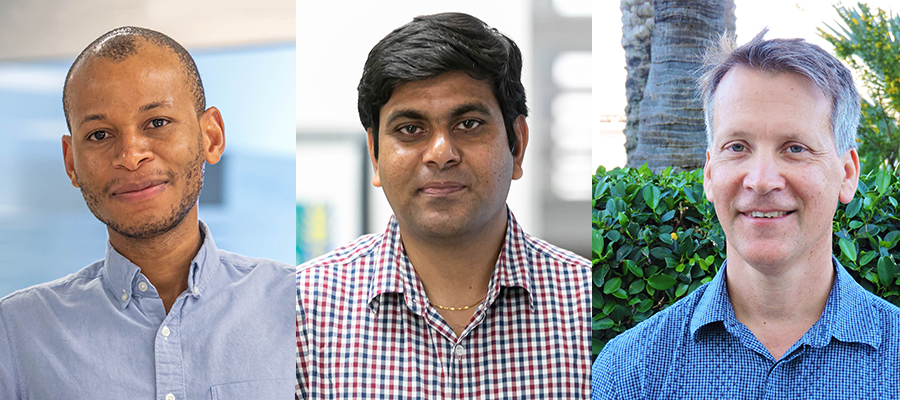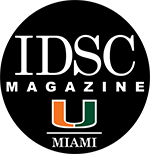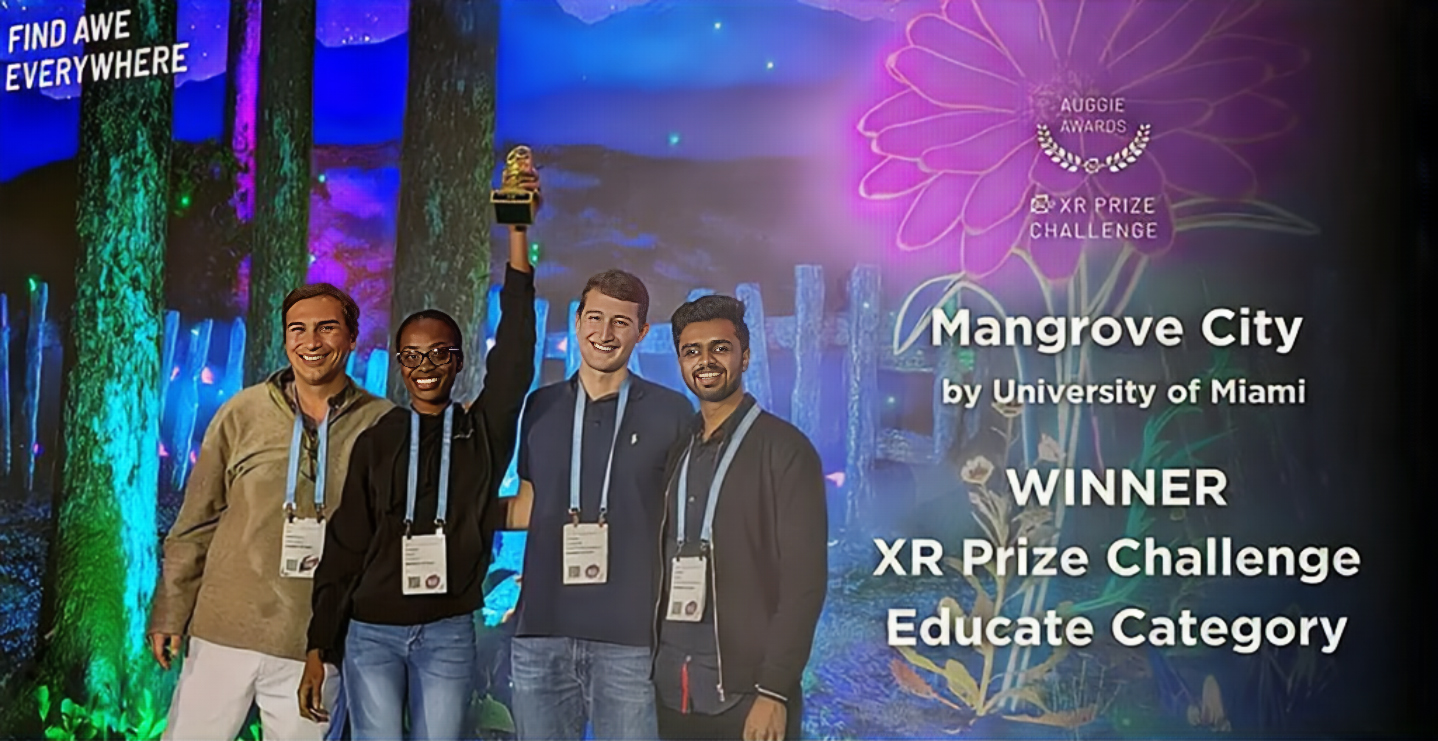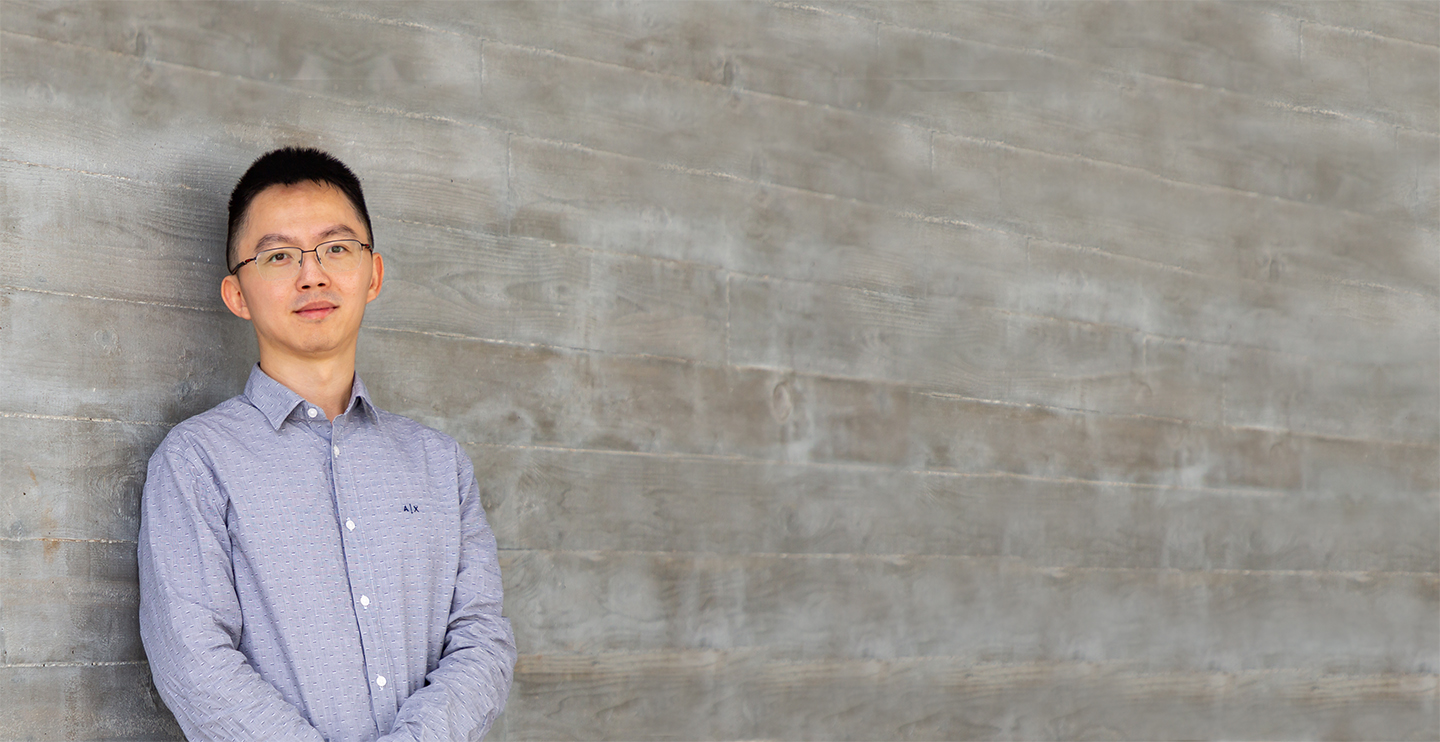A new Research Support Services team at the Frost Institute for Data Science and Computing (IDSC) will help University of Miami users and the private sector “connect the dots” in their research and development projects. “This an important outreach step for IDSC, making our advanced computing resources and expertise available to a wider field of users,” said Ravi Vadapalli, Ph.D., director, IDSC Advanced Computing, and research associate professor in the College of Engineering.
The Research Support Services team includes Elvis Maradzike, Ph.D., assistant scientist with a strong background in computational science; Rajesh Pasupuleti, Ph.D., assistant scientist at IDSC with experience in privacy-preserving data mining analysis, engineering, mathematics, and statistics; and Christopher Mader, senior director, IDSC Systems + Data Engineering. Read more about Elvis and Rajesh in this month’s New Faces.]

“A vibrant and thriving computational research community can accelerate
research workflows, turn data into knowledge, and open up questions that
become tangible with advanced computing tools.”
Reaching Out to the U
“We believe that a vibrant and thriving computational research community can accelerate research workflows, turn data into knowledge, and open up questions that become tangible with advanced computing tools,” said Vadapalli. “We can assist with interdisciplinary grant applications that create new streams of research and funding opportunities.” For example, a UM researcher who wants to harness data science tools, such as deep learning, or modify their existing advanced computing workflows, can call on IDSC’s Research Support Services for assistance and advice in organizing the data, creating a model, or running simulations. Team members can also provide customized advanced computing resource training for faculty and students.
“Our team can serve as an interface between university users and IDSC’s Triton supercomputing resources,” added Vadapalli. “If inconsistent results are being generated, we can look at how the software and hardware are interacting, collaboratively identify the problem, and help them run the application successfully.
“We want South Florida civic leaders, academic institutions, nonprofits,
and the private sector to connect with UM.”
Reaching Out to the Community
In addition to advancing UM research and education, the Research Support Services team members serve as ambassadors to the South Florida community for the University of Miami and its computing resources, added Vadapalli, who also leads IDSC’s Strategic Services Group.
“Data science is a common thread for addressing many of today’s issues,” said Vadapalli. “We also want South Florida civic leaders, academic institutions, nonprofits, and the private sector to connect with UM,” he said. “Whether training students and professionals, developing collaborative projects, or providing professional consulting, our team at IDSC can help achieve their goals.”
To contact the Research Support Services team, email hpc@ccs.miami.edu.
About IDSC Advanced Computing
Through IDSC, the University of Miami maintains one of the country’s largest centralized academic cyberinfrastructures. Since 2007, the University researchers and their collaborators contributed to an exponential growth in advanced computing investments amounting to more than 240 TFLOPS of computing capacity and more than 3 PB of parallel storage. The computing facility currently supports more than 50+ user groups across science, engineering, liberal arts, and medicine.
TRITON is UM’s first GPU-accelerated advanced computing system, one of the top 5 US academic institution supercomputers when launched in 2019. TRITON supports completely new approaches to computational and data science for all UM campuses. Built using IBM Power Systems AC922 servers, this system was designed to maximize data movement between the IBM POWER9 CPU and attached accelerators like GPUs.
IDSC Advanced Computing collaborates with IDSC Systems + Data Engineering to provide a comprehensive set of services and training opportunities for a well-rounded research computing and data science experience, including:
- High-Performance Computing
Multi-core enabled computational research support services across both CPU to GPU environments, job scheduling and management, high-performance parallel storage, and visualization - Data Science and Analytics
Customized training sessions in harnessing data science tools for research and training. Areas of support include: imaging, pattern recognition, convolutional neural networks, and deep learning strategies (contact us at idsc@miami.edu for your specific needs). - Research Facilitation
Support for translation of science drivers into computational research opportunities. Services include: algorithms, application development strategies, programming environment selection, etc. - Application Support
Configuration, installation, and optimization of application codes for native hardware and cloud environments supported through ACS - User Training
Resource-specific user training and engagement opportunities are available upon request. - Grant Collaborations
Engagement with faculty and researchers in computational research and data science related grant collaborations, provide and justification for resource needs, and collaborate in science drivers - Scientific Programming
Code Porting, Optimization, and Parallelization Support Vector Machines - Data Management
Scratch storage for application driven intermediate data. Archival storage is available through UMIT Research Services. - Consultation Services
Application to hardware to algorithm selection towards harnessing both advanced computing and data science capabilities.
IDSC Advanced Computing
Tags: Chris Mader, Elvis Maradzike, Rajesh Pasupuleti, Ravi Vadapalli, Research Support Services



